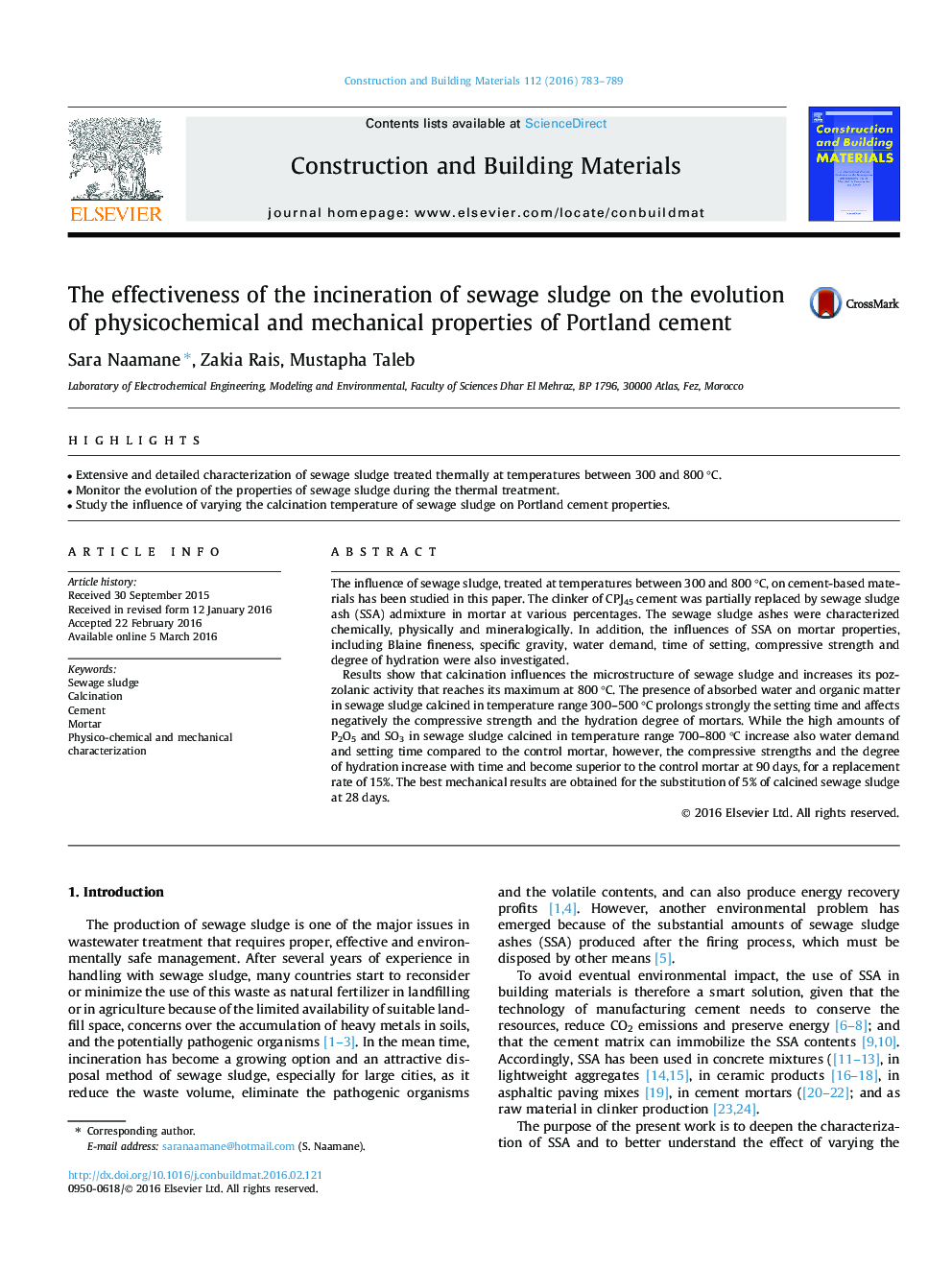| Article ID | Journal | Published Year | Pages | File Type |
|---|---|---|---|---|
| 6719324 | Construction and Building Materials | 2016 | 7 Pages |
Abstract
Results show that calcination influences the microstructure of sewage sludge and increases its pozzolanic activity that reaches its maximum at 800 °C. The presence of absorbed water and organic matter in sewage sludge calcined in temperature range 300-500 °C prolongs strongly the setting time and affects negatively the compressive strength and the hydration degree of mortars. While the high amounts of P2O5 and SO3 in sewage sludge calcined in temperature range 700-800 °C increase also water demand and setting time compared to the control mortar, however, the compressive strengths and the degree of hydration increase with time and become superior to the control mortar at 90 days, for a replacement rate of 15%. The best mechanical results are obtained for the substitution of 5% of calcined sewage sludge at 28 days.
Keywords
Related Topics
Physical Sciences and Engineering
Engineering
Civil and Structural Engineering
Authors
Sara Naamane, Zakia Rais, Mustapha Taleb,
